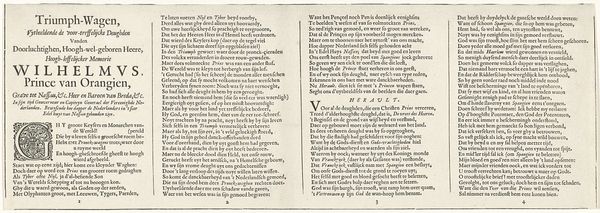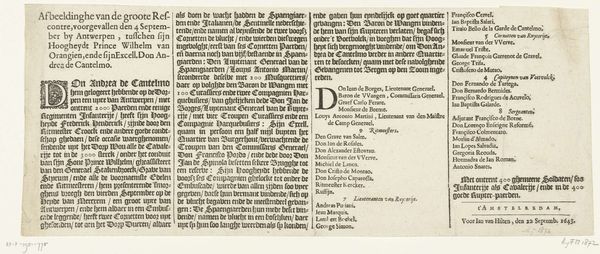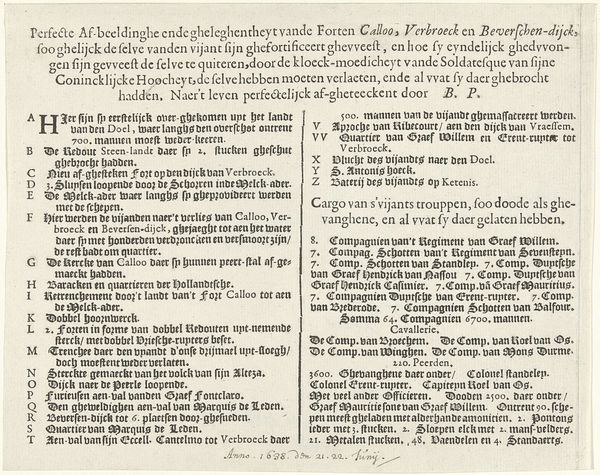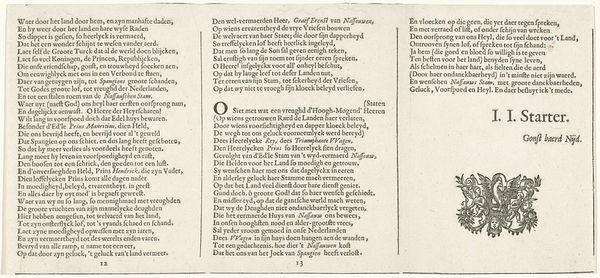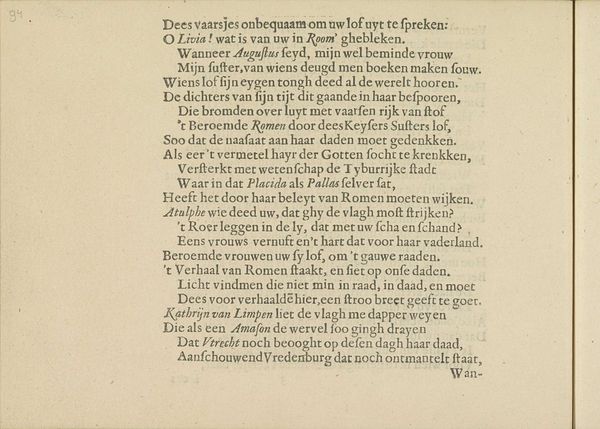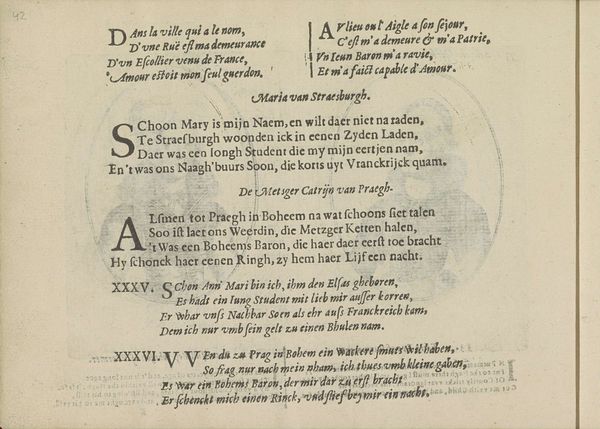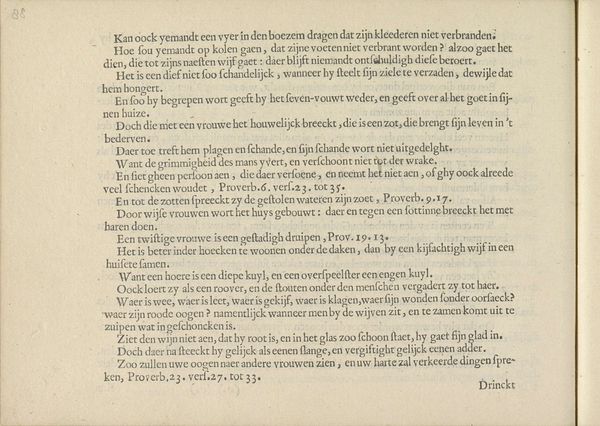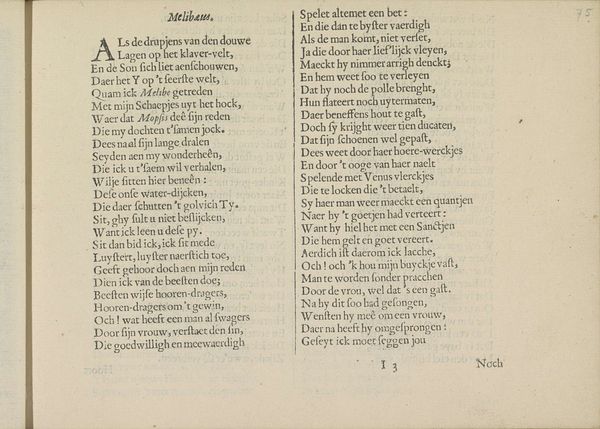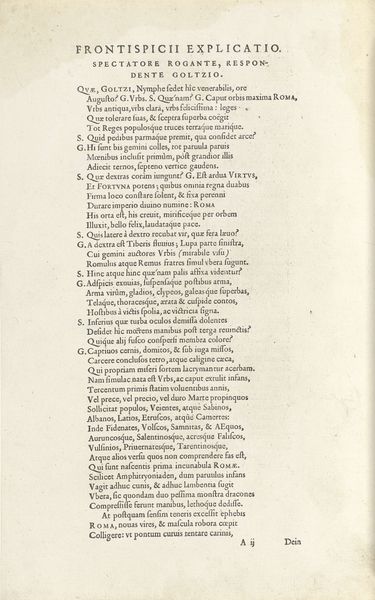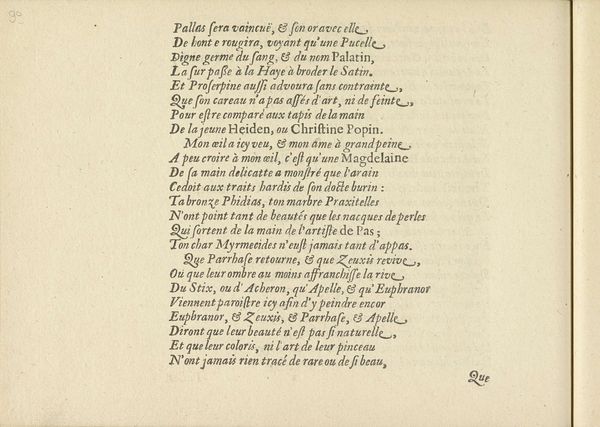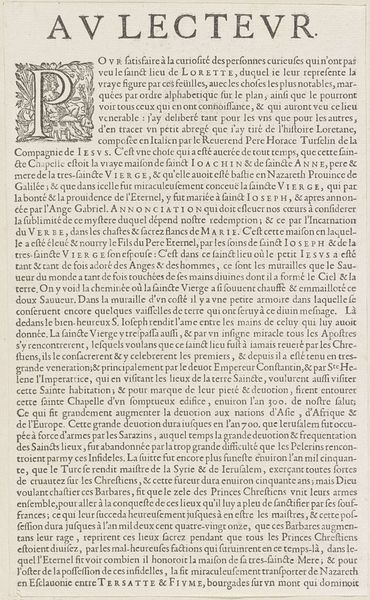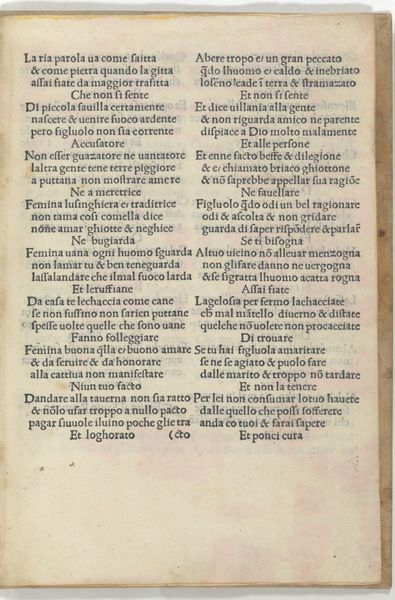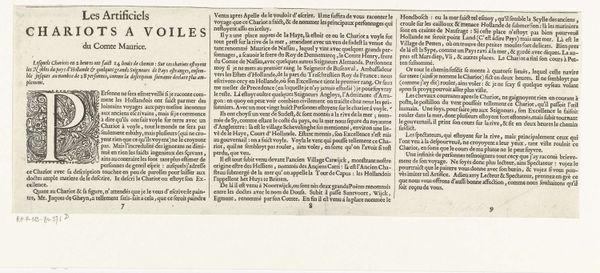
print, textile, paper, typography, engraving
#
newspaper
#
dutch-golden-age
# print
#
textile
#
typographical layout
#
paper
#
typography
#
newspaper layout
#
publication layout
#
engraving
#
calligraphy
Dimensions: height 148 mm, width 422 mm
Copyright: Rijks Museum: Open Domain
This printed text, made in the Netherlands during the early 17th century by Jan Jansz Starter, celebrates the triumphal march of William of Orange. The text presents William as a savior, one who bravely opposes Spanish tyranny and champions Dutch liberty. The verses likely circulated as pamphlets or broadsides, fueling the flames of patriotism during the Eighty Years' War. It creates meaning through visual codes, cultural references, and historical associations. The cultural context is crucial: the Dutch Republic was then a rising power, asserting its independence against Habsburg Spain. The text's religious undertones also reflect the Protestant Reformation's influence in the Netherlands. The very act of printing and distributing such material highlights the growing importance of public opinion in shaping political events. It’s a powerful example of how art can be deployed as propaganda, reinforcing national identity and galvanizing support for a cause. To fully grasp the text's significance, researchers might consult contemporary chronicles, political pamphlets, and songbooks. The history of the Dutch printing industry would also shed light on the mechanics of disseminating such potent messages.
Comments
No comments
Be the first to comment and join the conversation on the ultimate creative platform.
